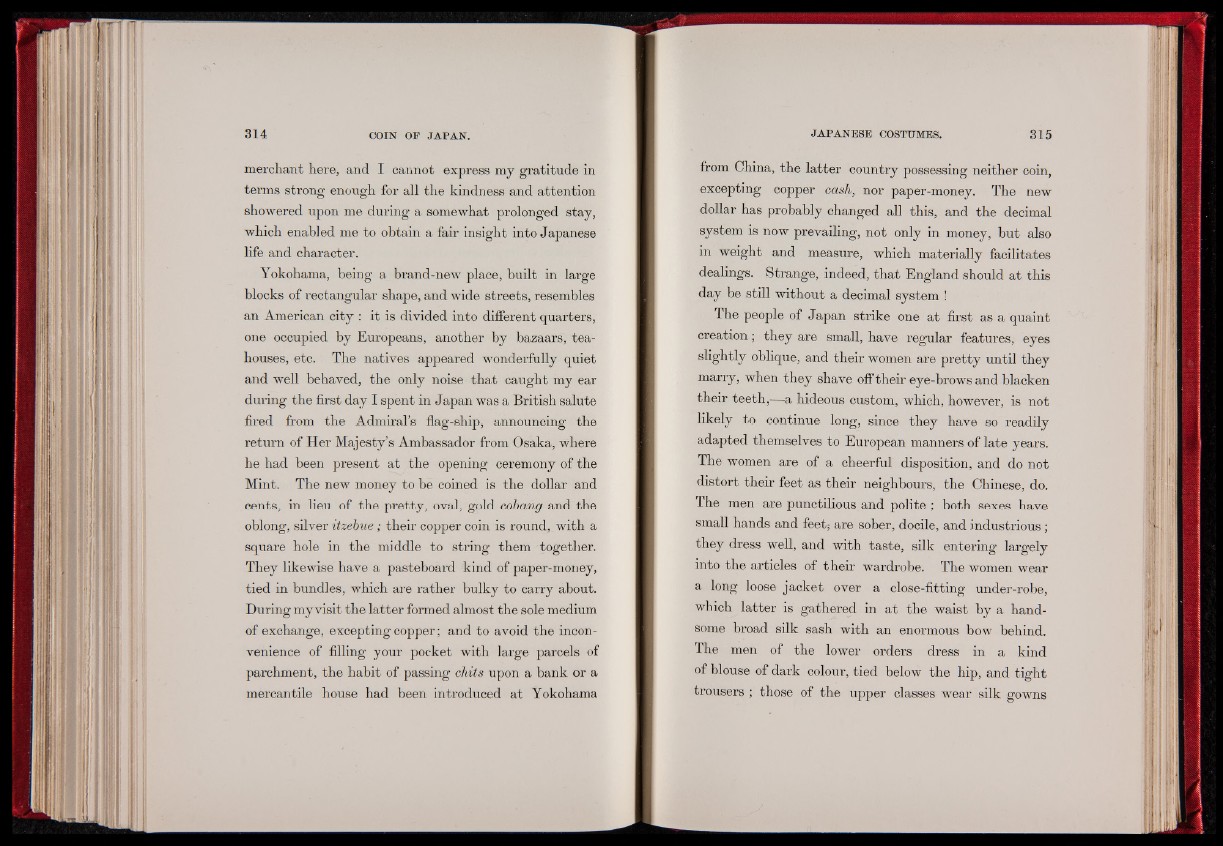
merchant here, and I cannot express my gratitude in
terms strong enough for all the kindness and attention
showered upon me during a somewhat prolonged stay,
which enabled me to obtain a fair insight into Japanese
life and character.
Yokohama, being a brand-new place, built in large
blocks of rectangular shape, and wide streets, resembles
an American city : it is divided into different quarters,
one occupied by Europeans, another by bazaars, teahouses,
etc. The natives appeared wonderfully quiet
and well behaved, the only noise that caught my ear
during the first day I spent in Japan was a British salute
fired from the Admiral’s flag-ship, announcing the
return of Her Majesty’s Ambassador from Osaka, where
he had been present at the opening ceremorty of the
Mint. The new money to be coined is the dollar and
cents, in lieu of the pretty, oval, gold cobang and the
oblong, silver itzebue; their copper coin is round, with a
square hole in the middle to string them together.
They likewise have a pasteboard kind of paper-money,
tied in bundles, which are rather bulky to carry about.
During my visit the latter formed almost the sole medium
of exchange, excepting copper; and to avoid the inconvenience
of filling your pocket with large parcels of
parchment, the habit of passing chits upon a bank or a
mercantile house had been introduced at Yokohama
from China, the latter country possessing neither coin,
excepting copper cash, nor paper-money. The new
dollar has probably changed all this, and the decimal
system is now prevailing, not only in money, but also
in weight and measure, which materially facilitates
dealings. Strange, indeed, that England should at this
day be still without a decimal system !
The people of Japan strike one at first as a quaint
creation; they are small, have regular features, eyes
slightly oblique, and their women are pretty until they
marry, when they shave off their eye-brows and blacken
their teeth,—a hideous custom, which, however, is not
likely to continue long, since they have so readily
adapted themselves to European manners of late years.
The women are of a cheerful disposition, and do not
distort their feet as their neighbours, the Chinese, do.
The men are punctilious and polite ; both sexes have
small hands and feet; are sober, docile, and industrious;
they dress well, and with taste, silk entering largely
into the articles of their wardrobe. The women wear
a long loose jacket over a close-fitting under-robe,
which latter is gathered in at the waist by a handsome
broad silk sash with an enormous bow behind.
The men of the lower orders dress in a kind
of blouse of dark colour, tied below the hip, and tight
trousers ; those of the upper classes wear silk gowns